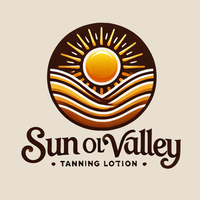- No products in the cart.
The Ultimate Guide to Tanning Lotions for Sensitive Skin The Ultimate Guide to Tanning Lotions for Sensitive Skin
21
Jul

The Ultimate Guide to Hypoallergenic Tanning Lotions for Sensitive Skin
Discover the safest, most effective tanning lotions for sensitive skin with our comprehensive guide featuring 5 proven hypoallergenic products that deliver beautiful results without irritation.
Introduction & Sensitive Skin Tanning Fundamentals
The Sensitive Skin Reality
Did you know that 60-70% of women and 50-60% of men report having some degree of sensitive skin? This means millions of people struggle to find safe, effective tanning solutions that won't cause irritation, redness, or allergic reactions. According to research published in the Journal of the American Academy of Dermatology, sensitive skin affects a significant portion of the population, making it crucial to understand proper care approaches.
What Makes Skin Sensitive?
Sensitive skin occurs when your skin's protective barrier is compromised, making it more reactive to external substances. The American Academy of Dermatology identifies several common triggers including:
- Synthetic fragrances - artificial scents that can cause contact dermatitis
- Artificial dyes - colorants that may trigger allergic reactions
- High DHA concentrations - can cause stinging and irritation
- Harsh chemicals - parabens, sulfates, and alcohol-based formulas
Understanding DHA Simply
DHA (Dihydroxyacetone) is a colorless sugar that reacts with amino acids in your skin's top layer to create a brown color. Think of it as a gentle chemical reaction that "stains" your skin temporarily. White DHA is a refined version that develops color more gradually and gently than traditional DHA.
What "Hypoallergenic" Really Means
Hypoallergenic means "less likely to cause allergic reactions." These products are formulated to minimize common allergens and irritants, making them safer for sensitive skin types.
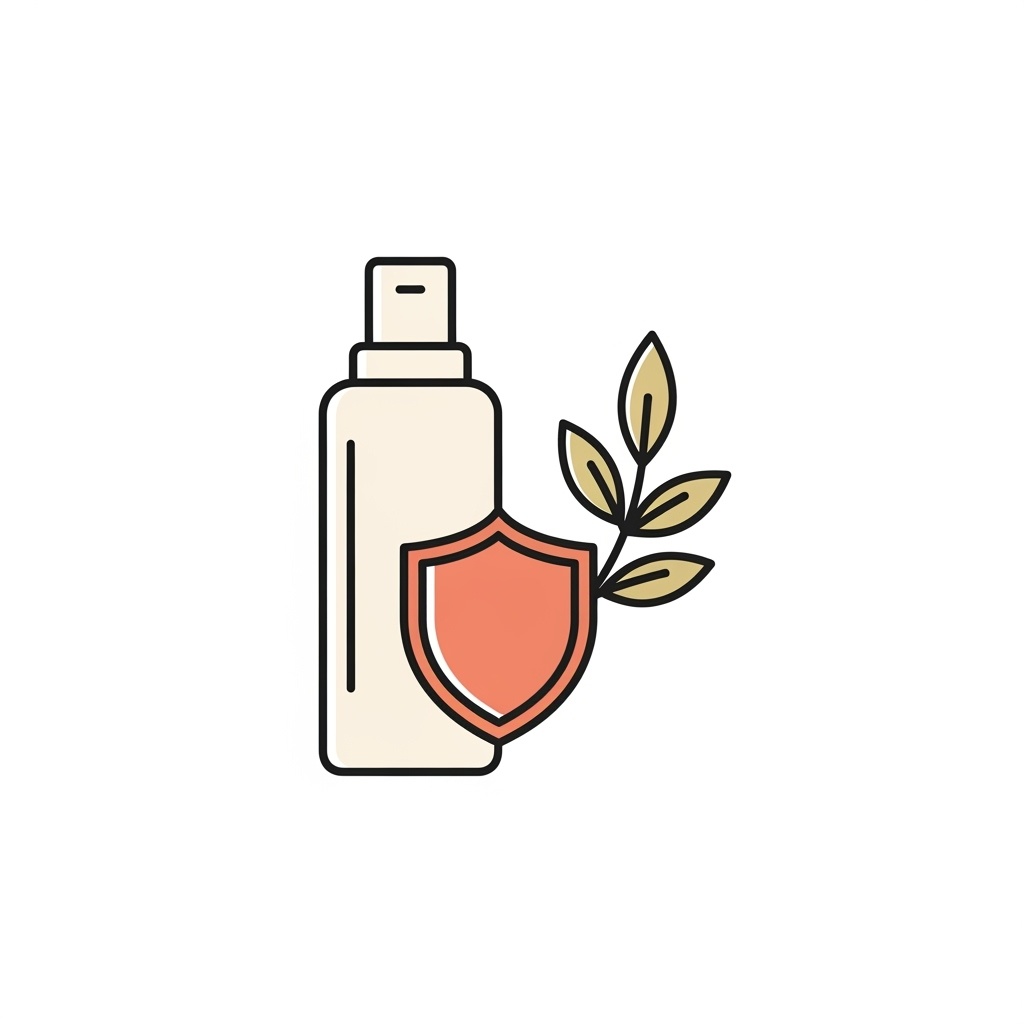
Key Benefits:
Reduced allergens • pH-balanced • Gentle ingredients
 The Critical Importance of Patch Testing
The Critical Importance of Patch Testing
Patch testing means applying a small amount of product to a discrete area of skin (like your inner elbow) and waiting 24-48 hours to check for reactions. This simple step can prevent widespread irritation and help you identify products that work safely with your skin.
Wait 24-48 Hours
Allow time for reactions to develop
Watch for Signs
Redness, itching, or burning
Prevent Problems
Avoid full-body reactions
Understanding Hypoallergenic Tanning Technology & Formulations
Key Gentle Ingredients to Look For
White DHA vs Traditional DHA
White DHA develops color more slowly and gently, reducing the risk of streaking and irritation compared to traditional DHA formulations.
Natural Moisturizers
- • Shea Butter - deeply moisturizes and soothes
- • Aloe Vera - anti-inflammatory and healing
- • Vitamin E - antioxidant protection
Skin-Soothing Additives
- • Allantoin - a gentle compound that helps heal and soothe irritated skin
- • Panthenol - also known as Pro-Vitamin B5, helps retain moisture
- • Raspberry Extract - natural antioxidant with anti-inflammatory properties
Ingredients to Avoid for Sensitive Skin
Synthetic Fragrances and Dyes
Look for "fragrance-free" (no added scents) rather than "unscented" (may contain masking fragrances). "Dye-free" means no artificial colorants that could cause reactions.
High DHA Concentrations
Products with very high DHA levels (above 10%) can cause stinging, burning, and uneven color development on sensitive skin.
Alcohol-Based Formulations
Alcohol can strip natural oils and cause dryness, making sensitive skin more reactive to other ingredients.
Common Allergens
Parabens (preservatives that can cause allergic reactions) and formaldehyde-releasing agents should be avoided. "Paraben-free" means these preservatives have been excluded.
Fragrance-Free vs Unscented
Fragrance-free means no scents added at all - crucial for sensitive skin. Unscented may still contain masking fragrances to hide chemical odors, which can still cause reactions.
Application Techniques & Best Practices for Sensitive Skin
Essential Patch Testing Protocol
1
Choose Test Area
Inner elbow or behind ear - areas that are sensitive but discrete
2
Apply Small Amount
Quarter-size amount, applied evenly to clean, dry skin
3
Wait & Watch
Wait 24-48 hours, checking for redness, itching, or burning
4
Evaluate Results
No reaction means safe to proceed; any irritation means avoid this product
Gentle Application Methods
Skin Preparation
- • Gentle cleansing with mild soap
- • Light exfoliation (not aggressive scrubbing)
- • Ensure skin is completely dry
- • Avoid recently shaved areas
Application Technique
- • Use circular motions for even coverage
- • Start with thin layers - build gradually
- • Work in small sections
- • Wash hands immediately after
Sensitive Skin Tips
- • Apply less frequently (every 3-4 days)
- • Use lower DHA concentrations
- • Avoid overlapping applications
- • Moisturize between applications
Troubleshooting Common Issues
Mild Reactions
- • Stop use immediately
- • Gently cleanse area
- • Apply cool compress
- • Use gentle moisturizer
When to Discontinue
- • Persistent redness or itching
- • Burning sensation
- • Skin rash or hives
- • Severe streaking or patches
Building Tolerance
- • Start with once weekly application
- • Gradually increase frequency
- • Use products with lower DHA first
- • Always patch test new products
Featured Product Roundup: Top 5 Hypoallergenic Tanning Lotions
Quick Comparison Table
| Product | Sensitivity Level | Fragrance-Free | DHA Type | Price |
|---|---|---|---|---|
| JWOWW Hypoallergenic DHA™ | Moderate | ❌ | White DHA | $54.99 |
| JWOWW White DHA Bronzer | High | ✅ | White DHA | $49.68 |
| JWOWW FIT LIFE | High | ✅ | DHA-Free | $69.90 |
| Designer Skin Confessions™ | Moderate | ❌ | Custom DHA | $48.95 |
| Designer Skin Divine™ | Ultra-High | ❌ | No DHA | $79.95 |
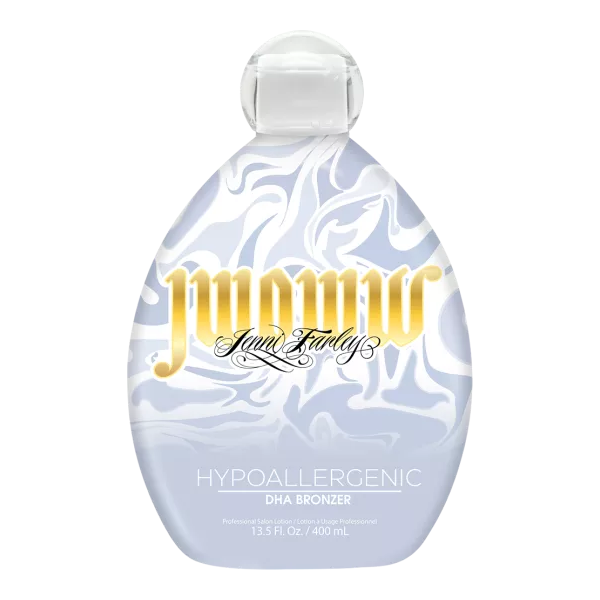
JWOWW Hypoallergenic DHA™ Self-Tanner
Best for: Moderate sensitive skin seeking self-tanning results
Key Features:
- • Advanced White DHA Bronzing Blend
- • Beta carotene for authentic color
- • Witch hazel ATO inhibitor
- • Tattoo protection complex
- • Gluten, paraben, and soy-free
Pros & Cons:
Gradual, natural-looking results
Prevents after-tan odor
Protects tattoos
Prevents after-tan odor
Protects tattoos
Contains fragrance (Agave Nectar)
May be too strong for ultra-sensitive skin
May be too strong for ultra-sensitive skin
$54.99*
Shop at SunolValley.com
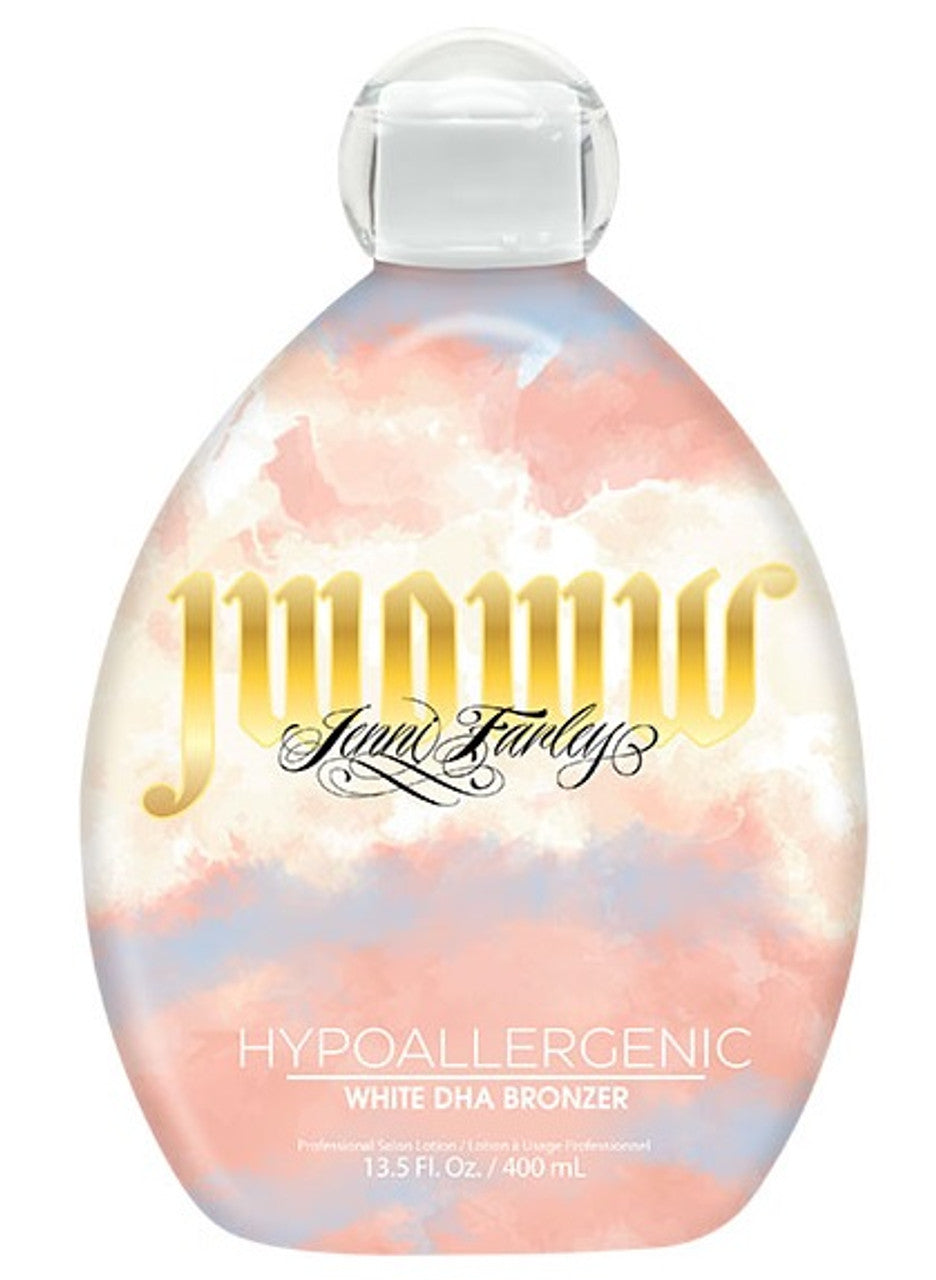
JWOWW Hypoallergenic White DHA Bronzer
Best for: Highly sensitive skin, fragrance allergies
Key Features:
- • Fragrance-free & dye-free formulation
- • Ink-Drink™ Complex with shea butter
- • Vitamin A for skin health
- • Gradual, streak-free color development
- • Skin-nourishing moisture blend
Ingredient Breakdown:
Gentle Actives: Shea Butter, Raspberry Extract, Aloe Vera
Vitamins: Vitamin A, Vitamin E, Vitamin C
Soothing Agents: Allantoin, Panthenol, Caffeine
$49.68*
Shop at SunolValley.com
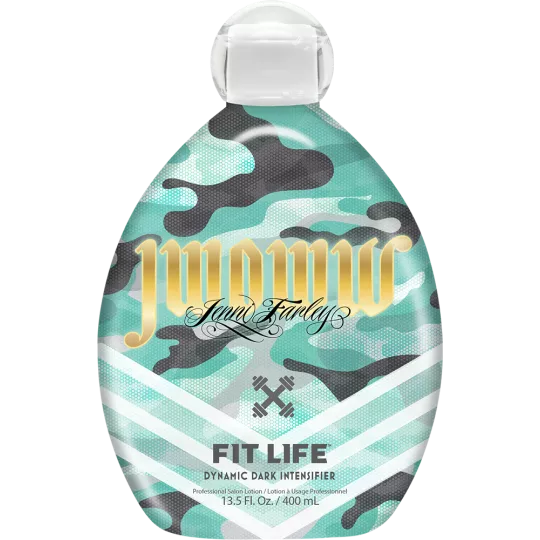
JWOWW FIT LIFE
Best for: Active individuals with sensitive skin
Key Features:
- • Hypoallergenic formula
- • Fragrance-free & dye-free
- • Dynamic Dark Intensifier (no DHA)
- • Caffeine-infused for skin tightening
- • After-tan odor inhibitor
Fitness-Focused Benefits:
- • Enhances natural melanin production
- • Energizes and tightens skin
- • Silicone for smooth application
- • Premium moisturizers
- • Works with body's natural process
User Experience Highlights:
"Perfect for my sensitive skin and active lifestyle. No irritation, no after-tan smell, and it works beautifully with my natural tanning process." - Sarah, 2025
$69.90*
Shop at SunolValley.com
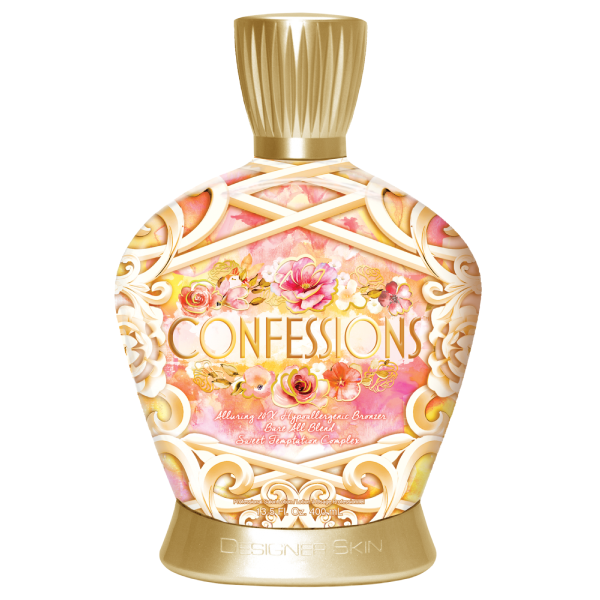
Designer Skin Confessions™ 20X Bronzer
Best for: Sensitive skin wanting immediate color
Key Features:
- • Hypoallergenic blend for sensitive skin
- • 20X bronzer with custom-blended DHA
- • Sweet Temptation Complex
- • Bare All Blend for even application
- • Instant color with gradual development
Professional Tips:
- • Apply in thin, even layers
- • Use mitts for best results
- • Start with less frequent applications
- • Allow 4-6 hours for development
- • Moisturize daily to maintain
Note for Scent-Sensitive Users:
Contains Peaches & Cream fragrance. While hypoallergenic, those with fragrance sensitivities should patch test first.
$48.95*
Shop at SunolValley.com
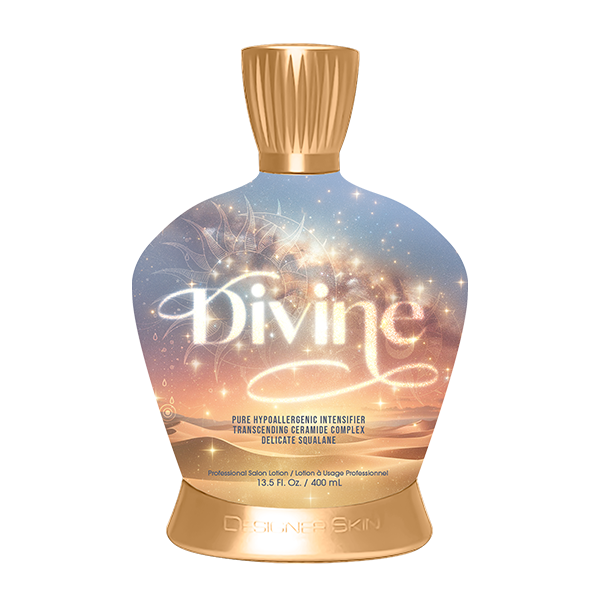
Designer Skin Divine™ Pure Hypoallergenic Intensifier
Best for: Ultra-sensitive skin preferring natural enhancement
Key Features:
- • Explicitly labeled hypoallergenic
- • No added bronzers - works with melanin
- • Silicone emulsion blend
- • Anti-aging and firming complexes
- • Light-enhancing formula
Long-Term Benefits:
- • Firming and tightening effects
- • Reduces fine lines appearance
- • Enhances skin's natural radiance
- • Suitable for daily use
- • Moisturizing between tans
Fragrance Consideration:
Features Passion Fruit Bloom fragrance. While gentle, extremely fragrance-sensitive individuals should test first.
$79.95*
Shop at SunolValley.com
*Price at time of publication
Expert Recommendations & Decision Framework
Sensitivity Level Matching Guide
Ultra-Sensitive Skin
For those with severe reactions to most products
JWOWW Hypoallergenic White DHA BronzerFragrance-free, dye-free formulation
Moderate Sensitivity
Can handle some ingredients but needs gentle formulas
JWOWW Hypoallergenic DHA™ Self-TannerBalanced formula with protective ingredients
Active Lifestyle + Sensitive Skin
Fitness enthusiasts with skin sensitivities
JWOWW FIT LIFEDHA-free formula with caffeine benefits
Want Immediate Color
Sensitive skin but need quick results
Designer Skin Confessions™20X bronzer in hypoallergenic formula
Prefer Natural Enhancement
Ultra-sensitive with anti-aging focus
Designer Skin Divine™ PureNo bronzers, works with natural melanin
Help Me Select the Right Lotion
1. How sensitive is your skin to fragrances?
Very sensitive - I react to most fragrances
Moderately sensitive - some fragrances bother me
Not sensitive - fragrances don't usually bother me
Professional Usage Tips
Creating a Patch Testing Routine
- • Test new products 48 hours before full use
- • Keep a log of products and reactions
- • Test during different seasons (skin changes)
- • Always test after medication changes
Building Product Tolerance
- • Start with once weekly application
- • Use lighter concentrations first
- • Gradually increase frequency
- • Monitor skin response closely
Seasonal Considerations
- • Winter: Skin may be more sensitive
- • Summer: Increase hydration
- • Humidity changes affect application
- • Adjust frequency based on natural sun exposure
When to Consult Dermatologists
- • Persistent reactions despite patch testing
- • Severe or worsening skin sensitivity
- • Questions about medication interactions
- • Pregnancy or hormonal changes
Complete Resource Guide & Shopping Advice
Side-by-Side Performance Analysis
Gentleness & Safety Ratings
JWOWW White DHA Bronzer
JWOWW FIT LIFE
Designer Skin Divine™
JWOWW Hypoallergenic DHA™
Designer Skin Confessions™
Value Analysis (Price per Application)
JWOWW White DHA Bronzer
$1.85
Designer Skin Confessions™
$1.82
JWOWW Hypoallergenic DHA™
$2.04
JWOWW FIT LIFE
$2.60
Designer Skin Divine™
$2.96
Shopping Guidelines
What to Look for in Hypoallergenic Claims
- • "Dermatologist tested" or "dermatologist recommended"
- • "Patch tested" or "allergy tested"
- • Specific allergen-free claims (paraben-free, fragrance-free)
- • Third-party testing certifications
Reading Ingredient Labels
- • Ingredients are listed in order of concentration
- • Look for recognizable, natural ingredients
- • Avoid long lists of unpronounceable chemicals
- • Check for your known allergens
Understanding Labeling
- • "Fragrance-free" = no added scents
- • "Unscented" = may contain masking fragrances
- • "Hypoallergenic" = less likely to cause allergic reactions
- • "Non-comedogenic" = won't clog pores
Price vs Value Considerations
- • Calculate cost per application, not just bottle price
- • Consider longevity and quality of results
- • Factor in potential skin treatment costs if reactions occur
- • Look for value sets or bundles
Frequently Asked Questions
It's not recommended. Regular tanning lotions often contain synthetic fragrances, dyes, and high DHA concentrations that can irritate sensitive skin. Hypoallergenic formulas are specifically designed to minimize these triggers while still providing effective tanning results.
Hypoallergenic self-tanners typically last 5-7 days on sensitive skin, similar to regular formulas. The gentler ingredients don't affect longevity, but proper application and aftercare are crucial for maintaining color and preventing irritation.
Stop using the product immediately, gently cleanse the area with mild soap and cool water, apply a cool compress, and use a gentle, fragrance-free moisturizer. If symptoms persist or worsen, consult a dermatologist. Always patch test future products.
Not necessarily. While many natural ingredients are gentle, some can be highly allergenic (like certain plant extracts or essential oils). The key is finding ingredients that work with your specific skin type, whether natural or synthetic. Always patch test any new product.
It's generally not recommended to mix products, as this can dilute the tanning agents and potentially cause reactions. If you need extra moisture, apply a hypoallergenic moisturizer first, let it absorb completely, then apply the tanning lotion. Or choose a tanning lotion with built-in moisturizing properties.
Alternative Options
When Home Tanning Isn't Suitable
If you've tried multiple hypoallergenic products and still experience reactions, consider these alternatives:
- • Professional spray tanning with hypoallergenic solutions
- • Airbrush tanning at specialized salons
- • Temporary bronzing makeup
- • Consulting a dermatologist for prescription options
Professional Spray Tanning Considerations
- • Ask about hypoallergenic solution options
- • Request a patch test with the spray solution
- • Choose salons with experience in sensitive skin
- • Discuss any known allergies with the technician
Gradual Tanning vs Bronzing Makeup
For extremely sensitive skin, bronzing makeup or gradual tanning moisturizers (with very low DHA) might be safer options that provide subtle color enhancement without the commitment of traditional self-tanners.
Building a Routine
- • Start with the gentlest option and work up
- • Keep a skin diary to track reactions
- • Have a backup plan for special events
- • Consider seasonal adjustments to your routine
Trust Signals
Dermatologist-Recommended Ingredients
Patch-Tested Formulas
Hypoallergenic Certified
Gentle, Natural Ingredients
Important Disclaimers
• Individual results may vary based on skin type and sensitivity
• Always patch test new products before full application
• Consult dermatologist for severe skin conditions
• Product availability and pricing accuracy disclaimers apply
• *Prices accurate at time of publication

The Ultimate Guide to Hypoallergenic Tanning Lotions for Sensitive Skin
Discover the safest, most effective tanning lotions for sensitive skin with our comprehensive guide featuring 5 proven hypoallergenic products that deliver beautiful results without irritation.
Introduction & Sensitive Skin Tanning Fundamentals
The Sensitive Skin Reality
Did you know that 60-70% of women and 50-60% of men report having some degree of sensitive skin? This means millions of people struggle to find safe, effective tanning solutions that won't cause irritation, redness, or allergic reactions. According to research published in the Journal of the American Academy of Dermatology, sensitive skin affects a significant portion of the population, making it crucial to understand proper care approaches.
What Makes Skin Sensitive?
Sensitive skin occurs when your skin's protective barrier is compromised, making it more reactive to external substances. The American Academy of Dermatology identifies several common triggers including:
- Synthetic fragrances - artificial scents that can cause contact dermatitis
- Artificial dyes - colorants that may trigger allergic reactions
- High DHA concentrations - can cause stinging and irritation
- Harsh chemicals - parabens, sulfates, and alcohol-based formulas
Understanding DHA Simply
DHA (Dihydroxyacetone) is a colorless sugar that reacts with amino acids in your skin's top layer to create a brown color. Think of it as a gentle chemical reaction that "stains" your skin temporarily. White DHA is a refined version that develops color more gradually and gently than traditional DHA.
What "Hypoallergenic" Really Means
Hypoallergenic means "less likely to cause allergic reactions." These products are formulated to minimize common allergens and irritants, making them safer for sensitive skin types.

Key Benefits:
Reduced allergens • pH-balanced • Gentle ingredients
 The Critical Importance of Patch Testing
The Critical Importance of Patch Testing
Patch testing means applying a small amount of product to a discrete area of skin (like your inner elbow) and waiting 24-48 hours to check for reactions. This simple step can prevent widespread irritation and help you identify products that work safely with your skin.
Wait 24-48 Hours
Allow time for reactions to develop
Watch for Signs
Redness, itching, or burning
Prevent Problems
Avoid full-body reactions
Understanding Hypoallergenic Tanning Technology & Formulations
Key Gentle Ingredients to Look For
White DHA vs Traditional DHA
White DHA develops color more slowly and gently, reducing the risk of streaking and irritation compared to traditional DHA formulations.
Natural Moisturizers
- • Shea Butter - deeply moisturizes and soothes
- • Aloe Vera - anti-inflammatory and healing
- • Vitamin E - antioxidant protection
Skin-Soothing Additives
- • Allantoin - a gentle compound that helps heal and soothe irritated skin
- • Panthenol - also known as Pro-Vitamin B5, helps retain moisture
- • Raspberry Extract - natural antioxidant with anti-inflammatory properties
Ingredients to Avoid for Sensitive Skin
Synthetic Fragrances and Dyes
Look for "fragrance-free" (no added scents) rather than "unscented" (may contain masking fragrances). "Dye-free" means no artificial colorants that could cause reactions.
High DHA Concentrations
Products with very high DHA levels (above 10%) can cause stinging, burning, and uneven color development on sensitive skin.
Alcohol-Based Formulations
Alcohol can strip natural oils and cause dryness, making sensitive skin more reactive to other ingredients.
Common Allergens
Parabens (preservatives that can cause allergic reactions) and formaldehyde-releasing agents should be avoided. "Paraben-free" means these preservatives have been excluded.
Fragrance-Free vs Unscented
Fragrance-free means no scents added at all - crucial for sensitive skin. Unscented may still contain masking fragrances to hide chemical odors, which can still cause reactions.
Application Techniques & Best Practices for Sensitive Skin
Essential Patch Testing Protocol
1
Choose Test Area
Inner elbow or behind ear - areas that are sensitive but discrete
2
Apply Small Amount
Quarter-size amount, applied evenly to clean, dry skin
3
Wait & Watch
Wait 24-48 hours, checking for redness, itching, or burning
4
Evaluate Results
No reaction means safe to proceed; any irritation means avoid this product
Gentle Application Methods
Skin Preparation
- • Gentle cleansing with mild soap
- • Light exfoliation (not aggressive scrubbing)
- • Ensure skin is completely dry
- • Avoid recently shaved areas
Application Technique
- • Use circular motions for even coverage
- • Start with thin layers - build gradually
- • Work in small sections
- • Wash hands immediately after
Sensitive Skin Tips
- • Apply less frequently (every 3-4 days)
- • Use lower DHA concentrations
- • Avoid overlapping applications
- • Moisturize between applications
Troubleshooting Common Issues
Mild Reactions
- • Stop use immediately
- • Gently cleanse area
- • Apply cool compress
- • Use gentle moisturizer
When to Discontinue
- • Persistent redness or itching
- • Burning sensation
- • Skin rash or hives
- • Severe streaking or patches
Building Tolerance
- • Start with once weekly application
- • Gradually increase frequency
- • Use products with lower DHA first
- • Always patch test new products
Featured Product Roundup: Top 5 Hypoallergenic Tanning Lotions
Quick Comparison Table
| Product | Sensitivity Level | Fragrance-Free | DHA Type | Price |
|---|---|---|---|---|
| JWOWW Hypoallergenic DHA™ | Moderate | ❌ | White DHA | $54.99 |
| JWOWW White DHA Bronzer | High | ✅ | White DHA | $49.68 |
| JWOWW FIT LIFE | High | ✅ | DHA-Free | $69.90 |
| Designer Skin Confessions™ | Moderate | ❌ | Custom DHA | $48.95 |
| Designer Skin Divine™ | Ultra-High | ❌ | No DHA | $79.95 |

JWOWW Hypoallergenic DHA™ Self-Tanner
Best for: Moderate sensitive skin seeking self-tanning results
Key Features:
- • Advanced White DHA Bronzing Blend
- • Beta carotene for authentic color
- • Witch hazel ATO inhibitor
- • Tattoo protection complex
- • Gluten, paraben, and soy-free
Pros & Cons:
Gradual, natural-looking results
Prevents after-tan odor
Protects tattoos
Prevents after-tan odor
Protects tattoos
Contains fragrance (Agave Nectar)
May be too strong for ultra-sensitive skin
May be too strong for ultra-sensitive skin
$54.99*
Shop at SunolValley.com

JWOWW Hypoallergenic White DHA Bronzer
Best for: Highly sensitive skin, fragrance allergies
Key Features:
- • Fragrance-free & dye-free formulation
- • Ink-Drink™ Complex with shea butter
- • Vitamin A for skin health
- • Gradual, streak-free color development
- • Skin-nourishing moisture blend
Ingredient Breakdown:
Gentle Actives: Shea Butter, Raspberry Extract, Aloe Vera
Vitamins: Vitamin A, Vitamin E, Vitamin C
Soothing Agents: Allantoin, Panthenol, Caffeine
$49.68*
Shop at SunolValley.com

JWOWW FIT LIFE
Best for: Active individuals with sensitive skin
Key Features:
- • Hypoallergenic formula
- • Fragrance-free & dye-free
- • Dynamic Dark Intensifier (no DHA)
- • Caffeine-infused for skin tightening
- • After-tan odor inhibitor
Fitness-Focused Benefits:
- • Enhances natural melanin production
- • Energizes and tightens skin
- • Silicone for smooth application
- • Premium moisturizers
- • Works with body's natural process
User Experience Highlights:
"Perfect for my sensitive skin and active lifestyle. No irritation, no after-tan smell, and it works beautifully with my natural tanning process." - Sarah, 2025
$69.90*
Shop at SunolValley.com

Designer Skin Confessions™ 20X Bronzer
Best for: Sensitive skin wanting immediate color
Key Features:
- • Hypoallergenic blend for sensitive skin
- • 20X bronzer with custom-blended DHA
- • Sweet Temptation Complex
- • Bare All Blend for even application
- • Instant color with gradual development
Professional Tips:
- • Apply in thin, even layers
- • Use mitts for best results
- • Start with less frequent applications
- • Allow 4-6 hours for development
- • Moisturize daily to maintain
Note for Scent-Sensitive Users:
Contains Peaches & Cream fragrance. While hypoallergenic, those with fragrance sensitivities should patch test first.
$48.95*
Shop at SunolValley.com

Designer Skin Divine™ Pure Hypoallergenic Intensifier
Best for: Ultra-sensitive skin preferring natural enhancement
Key Features:
- • Explicitly labeled hypoallergenic
- • No added bronzers - works with melanin
- • Silicone emulsion blend
- • Anti-aging and firming complexes
- • Light-enhancing formula
Long-Term Benefits:
- • Firming and tightening effects
- • Reduces fine lines appearance
- • Enhances skin's natural radiance
- • Suitable for daily use
- • Moisturizing between tans
Fragrance Consideration:
Features Passion Fruit Bloom fragrance. While gentle, extremely fragrance-sensitive individuals should test first.
$79.95*
Shop at SunolValley.com
*Price at time of publication
Expert Recommendations & Decision Framework
Sensitivity Level Matching Guide
Ultra-Sensitive Skin
For those with severe reactions to most products
JWOWW Hypoallergenic White DHA BronzerFragrance-free, dye-free formulation
Moderate Sensitivity
Can handle some ingredients but needs gentle formulas
JWOWW Hypoallergenic DHA™ Self-TannerBalanced formula with protective ingredients
Active Lifestyle + Sensitive Skin
Fitness enthusiasts with skin sensitivities
JWOWW FIT LIFEDHA-free formula with caffeine benefits
Want Immediate Color
Sensitive skin but need quick results
Designer Skin Confessions™20X bronzer in hypoallergenic formula
Prefer Natural Enhancement
Ultra-sensitive with anti-aging focus
Designer Skin Divine™ PureNo bronzers, works with natural melanin
Help Me Select the Right Lotion
1. How sensitive is your skin to fragrances?
Very sensitive - I react to most fragrances
Moderately sensitive - some fragrances bother me
Not sensitive - fragrances don't usually bother me
Professional Usage Tips
Creating a Patch Testing Routine
- • Test new products 48 hours before full use
- • Keep a log of products and reactions
- • Test during different seasons (skin changes)
- • Always test after medication changes
Building Product Tolerance
- • Start with once weekly application
- • Use lighter concentrations first
- • Gradually increase frequency
- • Monitor skin response closely
Seasonal Considerations
- • Winter: Skin may be more sensitive
- • Summer: Increase hydration
- • Humidity changes affect application
- • Adjust frequency based on natural sun exposure
When to Consult Dermatologists
- • Persistent reactions despite patch testing
- • Severe or worsening skin sensitivity
- • Questions about medication interactions
- • Pregnancy or hormonal changes
Complete Resource Guide & Shopping Advice
Side-by-Side Performance Analysis
Gentleness & Safety Ratings
JWOWW White DHA Bronzer
JWOWW FIT LIFE
Designer Skin Divine™
JWOWW Hypoallergenic DHA™
Designer Skin Confessions™
Value Analysis (Price per Application)
JWOWW White DHA Bronzer
$1.85
Designer Skin Confessions™
$1.82
JWOWW Hypoallergenic DHA™
$2.04
JWOWW FIT LIFE
$2.60
Designer Skin Divine™
$2.96
Shopping Guidelines
What to Look for in Hypoallergenic Claims
- • "Dermatologist tested" or "dermatologist recommended"
- • "Patch tested" or "allergy tested"
- • Specific allergen-free claims (paraben-free, fragrance-free)
- • Third-party testing certifications
Reading Ingredient Labels
- • Ingredients are listed in order of concentration
- • Look for recognizable, natural ingredients
- • Avoid long lists of unpronounceable chemicals
- • Check for your known allergens
Understanding Labeling
- • "Fragrance-free" = no added scents
- • "Unscented" = may contain masking fragrances
- • "Hypoallergenic" = less likely to cause allergic reactions
- • "Non-comedogenic" = won't clog pores
Price vs Value Considerations
- • Calculate cost per application, not just bottle price
- • Consider longevity and quality of results
- • Factor in potential skin treatment costs if reactions occur
- • Look for value sets or bundles
Frequently Asked Questions
It's not recommended. Regular tanning lotions often contain synthetic fragrances, dyes, and high DHA concentrations that can irritate sensitive skin. Hypoallergenic formulas are specifically designed to minimize these triggers while still providing effective tanning results.
Hypoallergenic self-tanners typically last 5-7 days on sensitive skin, similar to regular formulas. The gentler ingredients don't affect longevity, but proper application and aftercare are crucial for maintaining color and preventing irritation.
Stop using the product immediately, gently cleanse the area with mild soap and cool water, apply a cool compress, and use a gentle, fragrance-free moisturizer. If symptoms persist or worsen, consult a dermatologist. Always patch test future products.
Not necessarily. While many natural ingredients are gentle, some can be highly allergenic (like certain plant extracts or essential oils). The key is finding ingredients that work with your specific skin type, whether natural or synthetic. Always patch test any new product.
It's generally not recommended to mix products, as this can dilute the tanning agents and potentially cause reactions. If you need extra moisture, apply a hypoallergenic moisturizer first, let it absorb completely, then apply the tanning lotion. Or choose a tanning lotion with built-in moisturizing properties.
Alternative Options
When Home Tanning Isn't Suitable
If you've tried multiple hypoallergenic products and still experience reactions, consider these alternatives:
- • Professional spray tanning with hypoallergenic solutions
- • Airbrush tanning at specialized salons
- • Temporary bronzing makeup
- • Consulting a dermatologist for prescription options
Professional Spray Tanning Considerations
- • Ask about hypoallergenic solution options
- • Request a patch test with the spray solution
- • Choose salons with experience in sensitive skin
- • Discuss any known allergies with the technician
Gradual Tanning vs Bronzing Makeup
For extremely sensitive skin, bronzing makeup or gradual tanning moisturizers (with very low DHA) might be safer options that provide subtle color enhancement without the commitment of traditional self-tanners.
Building a Routine
- • Start with the gentlest option and work up
- • Keep a skin diary to track reactions
- • Have a backup plan for special events
- • Consider seasonal adjustments to your routine
Trust Signals
Dermatologist-Recommended Ingredients
Patch-Tested Formulas
Hypoallergenic Certified
Gentle, Natural Ingredients
Important Disclaimers
• Individual results may vary based on skin type and sensitivity
• Always patch test new products before full application
• Consult dermatologist for severe skin conditions
• Product availability and pricing accuracy disclaimers apply
• *Prices accurate at time of publication
